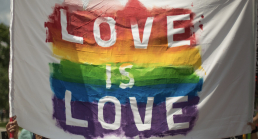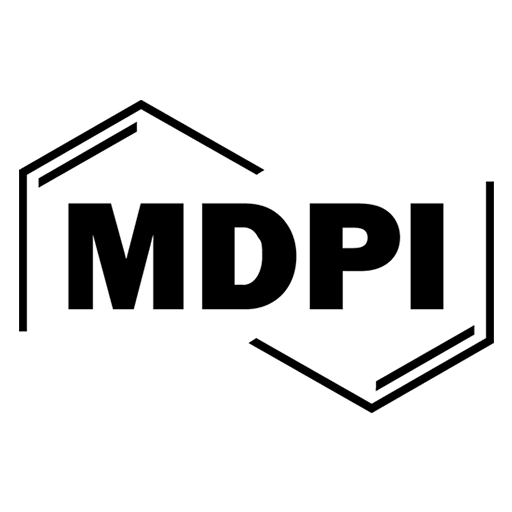
Pride Month
With Pride Month here, we wanted to take time to recognize the importance of LGBTQ+ rights and the ways in which research can help this movement.
We see the importance of diversity and inclusion in the workplace as pivotal to creating an environment that helps people to excel. Because of that, MDPI adopts the principles of the Coalition for Diversity & Inclusion in Scholarly Communications (C4DISC) to support building equity, inclusion, diversity, and accessibility in scholarly communications.
Here, we have put together a collection of articles for Pride Month that we believe may be of interest to readers on the intersectionality of LGBTQ+ rights and academic research on this multifaceted and important issue.
LGBTQ+ communities and representation in video games
Gaming is an ever-growing activity. What once was a fairly marginal hobby has now grown to a vast multi-billion dollar industry. Every year, there are massive tournaments with millions of dollars in prize money being put up for the winners of these events. Professional teams are starting to rival the popularity of some traditional sports.
Within this context, the amount of LGBTQ+ individuals playing video games is also increasing.
Along with this growth in players, LGBTQ+ representation in video games continues to increase as well. As noted in an article we wrote on this subject,
“Only small changes need to be made. The research states, ‘the consideration of TGD gamers’ needs does not require major revision, but greater recognition of human diversity and responsive expansion of simple key elements of design, primarily, to facilitate a more inclusive experience’. As with any great change in practices, it starts with research. The study mentioned in this article has the potential to be incorporated into gaming and the laws surrounding it.”
With the growth of Internet-related activities moving forward, research into safe and inclusive spaces, both online and in video games (as both share a significant overlap), is of pivotal importance.
Read our article The Connection Between the LGBTQ+ Community and Video Games if you want to learn more.
Gender dysphoria and gender affirmation
Stonewall, one of the most well-known and important LGBTQ+ charities, defines Gender Dysphoria as,
“when a person experiences discomfort or distress because there is a mismatch between their sex assigned at birth and their gender identity. This is also the clinical diagnosis for someone who doesn’t feel comfortable with the sex they were assigned at birth.”
This concept is something that can be very difficult for a person who hasn’t experienced it to understand. One of the first steps in helping people struggling with gender dysphoria is to understand it. Knowing about the lived experiences of people with gender dysphoria, with particular importance on trans people, is a vital component of developing a holistic understanding of its impacts.
From MRI research to open and frank discussion of lived experiences, the avenues to create bridges towards understanding continue to grow. Further support for gender affirmation can touch on many different things, and may include a combination of:
- Social gender affirmation to recognize and have the respect of one’s gender identity by friends, colleagues, and family members.
- Clinical gender affirmation that usually utilizes gender-affirming medical treatments, such as hormone therapy or surgery.
- Psychological gender affirmation, which is “an internal sense of valuing oneself as a transgender or gender diverse person, being comfortable with one’s gender identity, and feeling satisfied with one’s body and gender expression”.
Understanding will help to increase the quality of life of many people, and further research can help. If you want to learn more about this topic, our article Understanding Gender Dysphoria and Gender Affirmation covers it in more detail.
LGBTQ+ healthcare disparities
The 2017 National LGBT Survey was eye-opening and had over 108,000 respondents who helped to shed light on current healthcare situations from the perspective of the LGBTQ+ community. At least 16% described their experience as negative due to their sexual orientation. At least 38% had some kind of negative experience due to their gender identity when accessing (or attempting to access) public health services.
Healthcare is of pivotal importance to the general wellbeing of people and society, so these kinds of numbers are not acceptable.
A further 51% had had to wait too long and a total of 27% were worried, anxious, or embarrassed.
Sixteen percent felt their general practitioner was unsupportive when trying to access mental health services.
Eighty percent of trans participants had difficulty or long waiting times when accessing or attempting to access gender identity clinics.
A deep dive into a number of different papers on various different elements and aspects of this topic is available to interested readers in our article Healthcare Disparities in the LGBTQ+ Community.
Pet caregiving and LGBTQ+ youth
Because of the COVID-19 pandemic, there has been an increase in research on the effects of pets on the wellbeing of younger people. Especially those who are coping with anxiety and uncertainty.
Human and animal interactions have been a bedrock in human civilization for tens of thousands of years. Over time, while the dynamics of some of these relationships have changed (from our days as hunter-gatherers to cat worship on the Internet), the importance of these relationships has been a fascinating area of research for scientists.
One particular area of interest that has been increasing is the ways in which animal-assisted therapy can impact mental wellbeing. From helping nervous travelers to seeing-eye dogs, the ways in which the presence of animals can help people continues to grow.
Our article on a recent study on the influence of pets on LGBTQ+ youth addresses this,
“Pets, the study found, help to shift the focus from internal, fearful thoughts about living precarity and marginalization to something ‘external’ and potentially ‘more productive’”
In the article, there is also information about ways to support LGBTQ+ youth who are facing challenging times. Read The Power of Pet Caregiving for LGBTQ+ Youth for more.
LGBTQ+ lives are around the world
In our article, How LGBTQ+ Lives Are Affected around the World, we take a closer look at how LGBTQ+ lives are affected in various countries around the world, and how MDPI research is highlighting inequalities.
Countries covered include China, Indonesia, Australia, Taiwan, and Spain.
The article reflects how
The research already published in MDPI journals can help us to create a safer world for LGBT+ people by increasing our knowledge of and insight into societal problems. It allows us to continue to address inequalities and drive out stigma and shame.
Pride Month: moving forward in the right direction
It is of pivotal importance for communities, from social to academic to everything in between, to learn about and understand the ways in which life can be different for other people. This is why we need time like Pride Month to reflect and connect.
Building an understanding of their lived experiences and the tools that can be used to further improve their lives is important. There is ample research, but more is always needed. Exploring new research perspectives and promoting the role of academics in highlighting the experiences of the LGBTQ+ community are key to ensuring inclusivity and diversity in scholarly publishing, as well as wider society.










